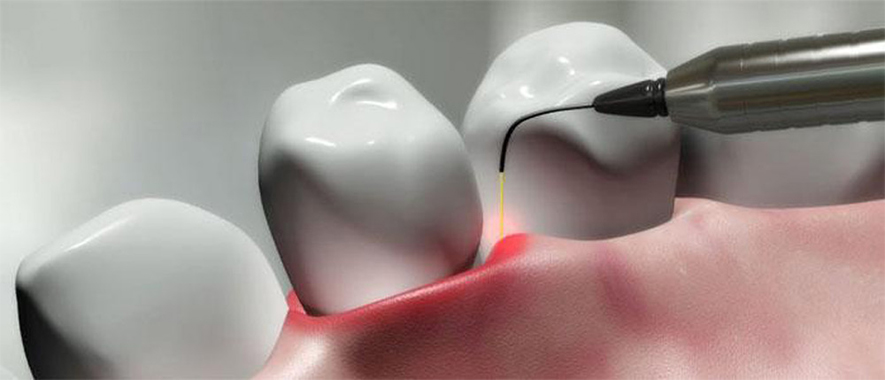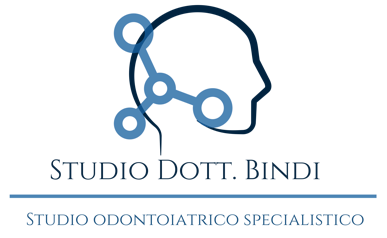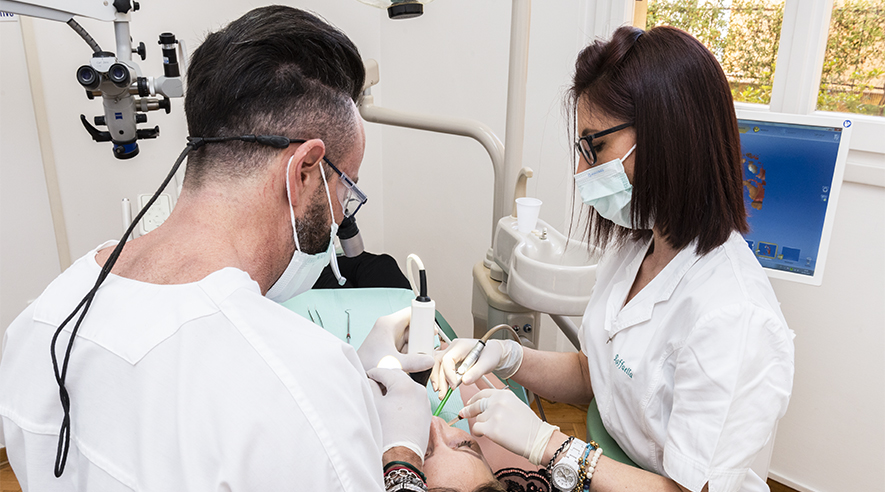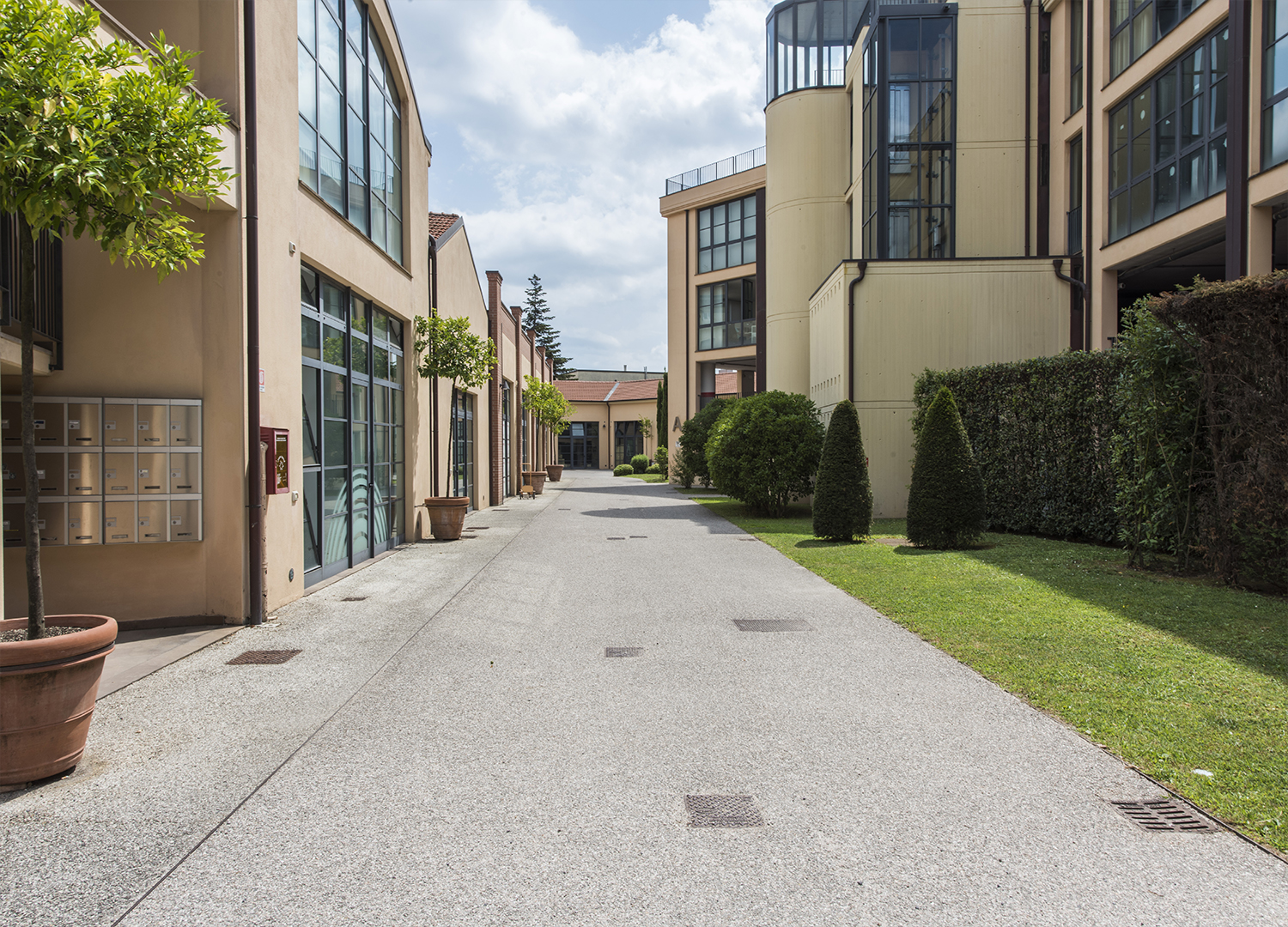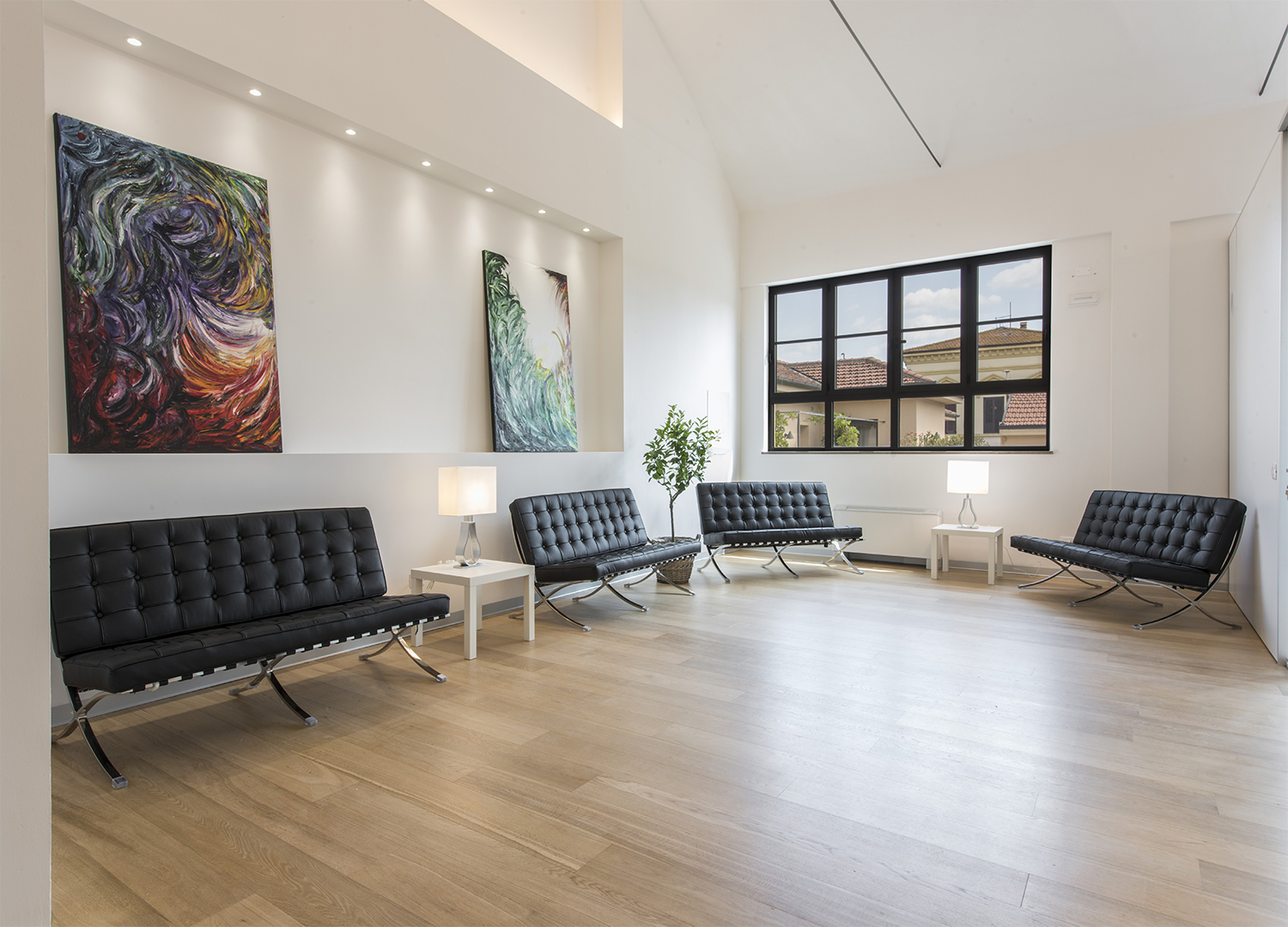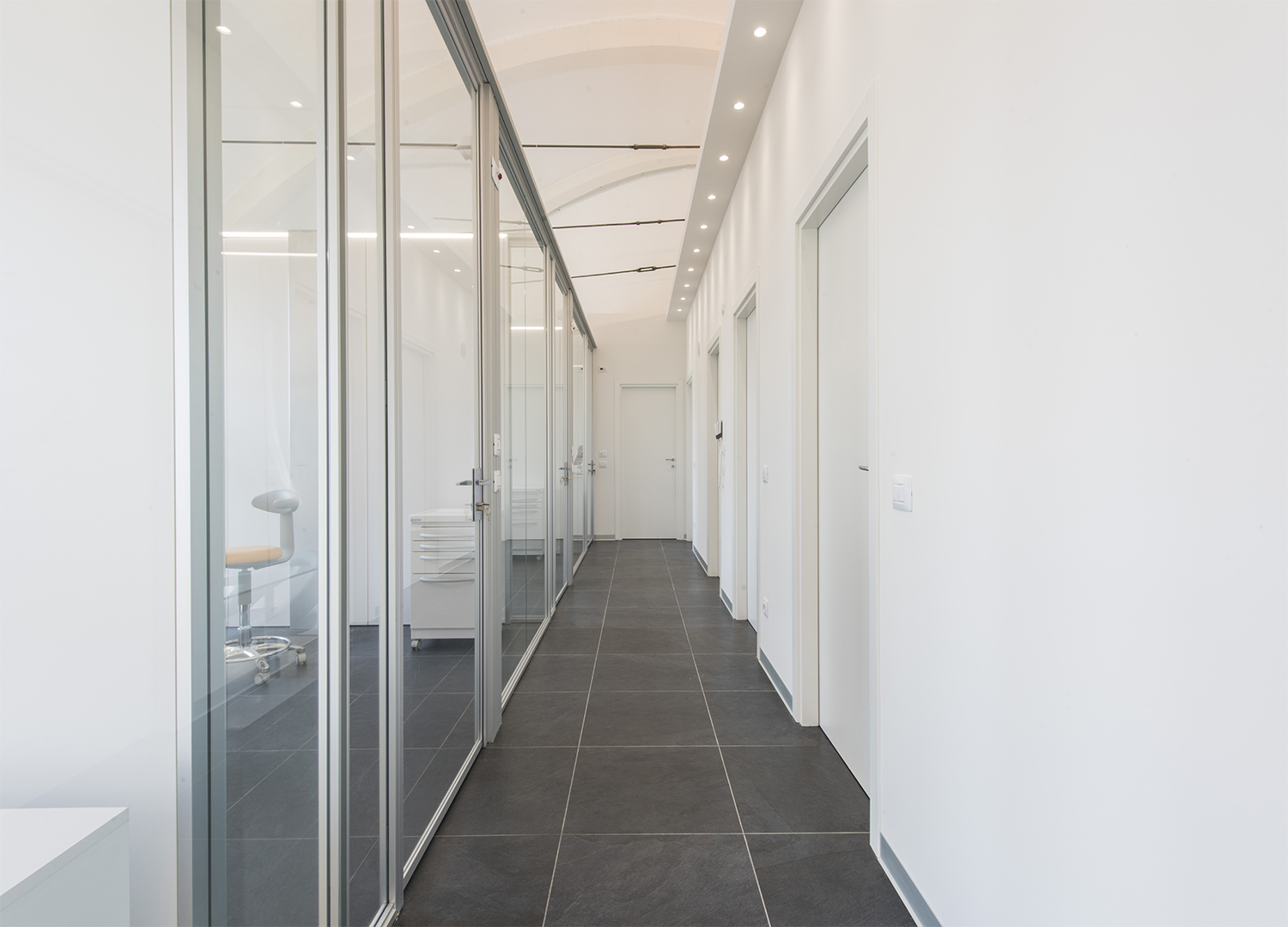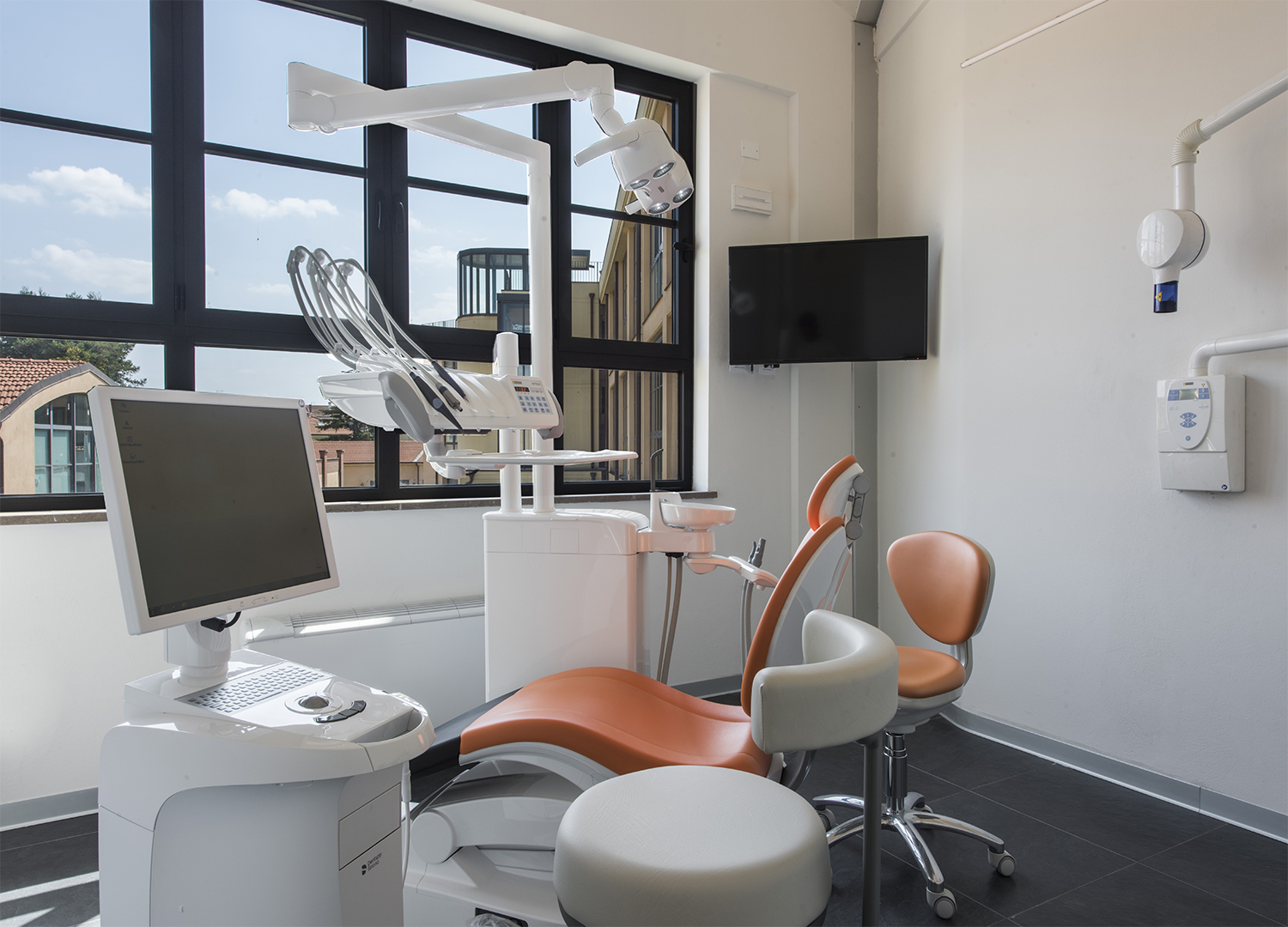This is important, even though it cannot be seen.
Even if you brush your teeth, failure to keep up regular visits to a dental hygienist leads in most cases to periodontal disease or pyorrhoea.
The dentists at the Bindi Specialist Dental Clinic have trained in the best centres in the world for the study and treatment of this disease and we will work to find a way to maintain the long-term health of your teeth. Don’t neglect your smile: come and visit us.
What is it?
It is the prevention, diagnosis and treatment of diseases affecting the gums and the bone supporting the tooth. The tooth is attached to the bone by structures that ensure it is strong and works properly.
If the structures surrounding and supporting the tooth (gums and bone) become diseased, you risk losing your natural teeth. At the the Bindi Specialist Dental Clinic, we diagnose the condition correctly in order to identify the stage of the infection process. This process is called periodontitis, also known as pyorrhoea.
Long-term consequences
The main long-term consequence is the loss of most of your teeth. This loss has same effect as edentulism: difficulty in chewing, stomach problems, changed appearance, pain, bad breath, bleeding gums and so on. Bacteria can enter the bloodstream and aggravate some heart diseases.
What are the causes and symptons?
Bacteria are responsible for the infection. Most of these bacteria are harmless under normal circumstances, but some patients do not have an effective defence system. In these cases, an infection arises that gradually weakens the teeth.
Various symptoms make it possible to identify the stage of the infection:
Gingivitis:
All periodontal problems begin with the gums. Instead of being pink, the gums turn red, swell, hurt and bleed when you brush your teeth.
Periodontitis:
This is the gum recession stage. This has a clear impact on the way the tooth looks (over-long). Plaque builds up, especially on the outer bases of the teeth. The teeth are slightly mobile. Sometimes the teeth move and gaps are created. The gums are red and bleed easily. Halitosis and a bad taste in the mouth are the characteristic symptoms. Sometimes very hot or very cold drinks or food cause pain.
Advanced periodontitis:
At this stage, all the symptoms described get worse. The teeth move excessively and end up falling out. The gum bleeds abundantly and hurt so much that it is difficult to maintain proper dental hygiene, further aggravating the problem.
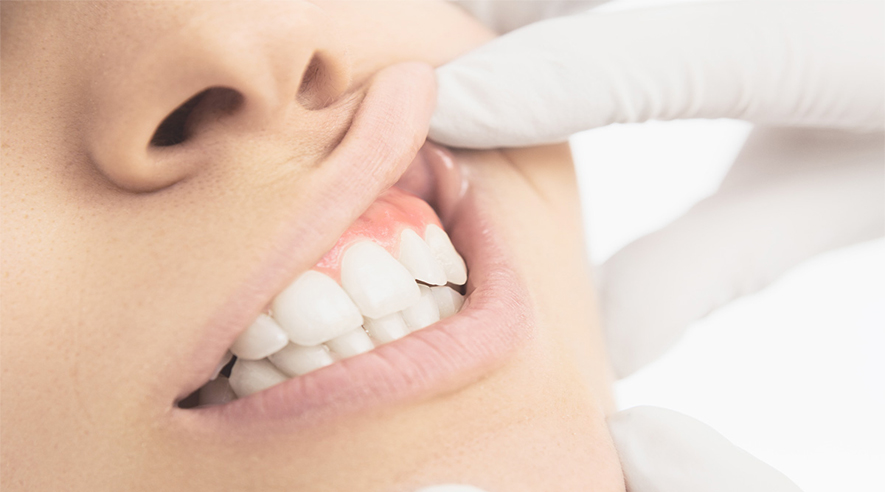
Solutions
Gingivitis can be cured if it is at an early stage You should be aware that it tends to recur and become chronic. This means that when the infection is at an advanced stage and considerable bone resorption has taken place, all we can to is stop the progress of infection. It is difficult to recover the lost bone, but regenerative techniques can be successful. At the Bindi Specialist Dental Clinic, we assess whether or not the patient can undergo such techniques.
The basic treatment involves removal of the infection by means of deep cleaning under local anaesthesia. If the stage is very advanced or if regeneration is necessary, surgery must be performed, again under local anaesthesia. Treatment ends with administration of antibiotics.
It is important for patients to be aware of their problem and realise they will have to undergo maintenance cleaning at least once yearly after the initial treatment. Oral hygiene is very important for treating this kind of problem. This is the only way of ensuring that treatment is successful.
Step-by-step basic treatment
Basic treatment involves full cleaning of the gums using ultrasonic and hand-held instruments, curettes and cleaners to remove all the bacterial plaque. Our dentist will do this in such a way that, after cleaning, the inflammation abates and the gum again adheres to the tooth, forming a barrier to prevent bacteria getting through.
The basic treatment is carried out zone by zone. The mouth is divided into four quadrants and one is treated in each session. The cleaning sessions take place under local anaesthesia. Each session takes around 45-60 minutes. Once the session is over and the anaesthetic wears off, patients feel no discomfort and within three or four days their gums will be much healthier.
Regenerative treatment
In the most severe cases, an infection that has dragged on over time can cause bone resorption in the patient: the bone structure must be re-stabilised before any restoration work is carried out. Various biomaterials are used, including membranes, amelogenin, bone and so on. Everything is combined effectively to restore the lost anatomy.
Pyorrhoea is not painful but eventually destroys the bone supporting the teeth so that they fall out without any warning. Approximately 65% of the population is affected by this condition without knowing it and its diagnosis is neglected by most dental practices or treated using non-specialist techniques with disappointing results. Periodontal disease must be diagnosed as early as possible (nowadays it can even be diagnosed in adolescents) and treated scientifically.
Laser Assisted New Attachment Procedure LANAP
Lanap (Laser Assisted New Attachment Procedure) it allows to treat the deep periodontal tissues and to help the healing of the disease, avoiding in many cases the surgery.
